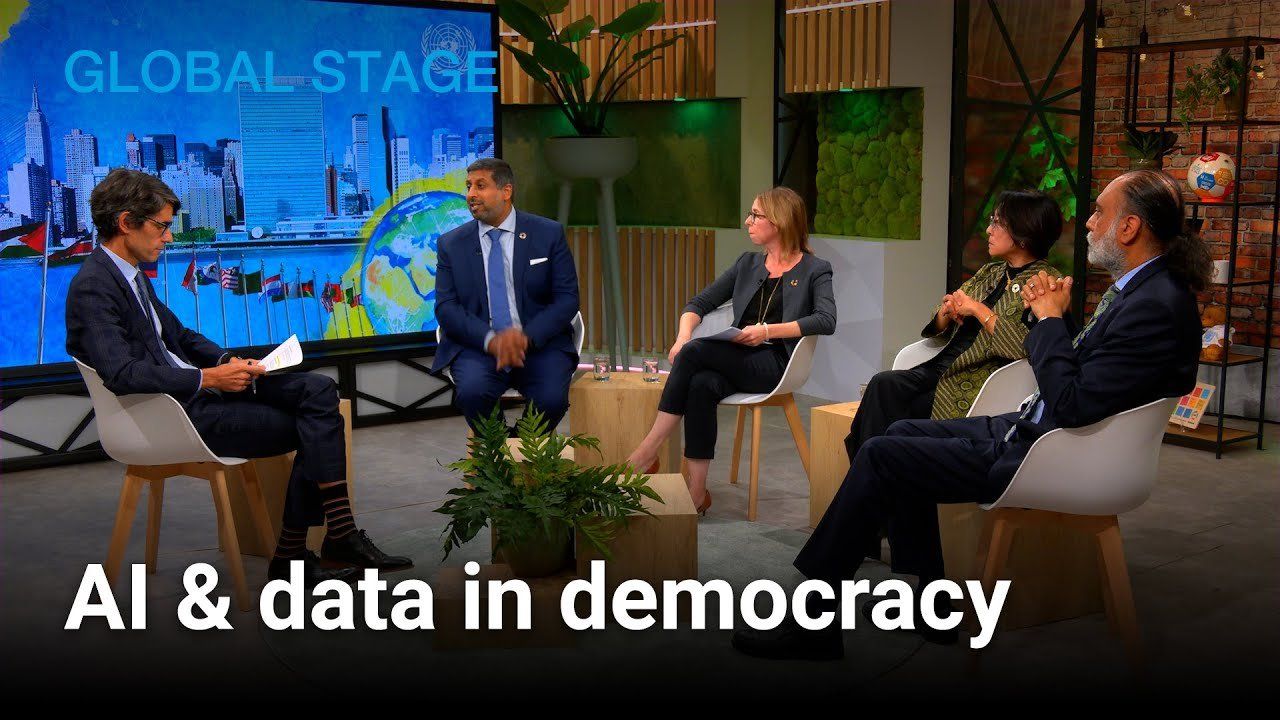
Artificial intelligence and data have hugged the headlines this year, even at the just concluded 78th United Nations General Assembly.
According to Vilas Dhar, President and Trustee of the Patrick J. McGovern Foundation, its impact and use will continue to soar and play a pivotal role in determining critical elections.
However, to be in the driving seat, Dhar suggests the people and communities at the heart of data collection be key regulators.
“Instead of thinking only about short-term risks and long-term risks, thinking about the middle where we build prosocial applications of these tools that really bring together incredible data sets, but say we will learn what the risks are as we deploy them with communities as co-architects,” Dhar, who lead efforts in the AI and data solutions space, said during a Global Stage livestream event at UN headquarters in New York on September 22, on the sidelines of the UN General Assembly.
The discussion was moderated by Nicholas Thompson of The Atlantic. It was held by GZERO Media in collaboration with the United Nations, the Complex Risk Analytics Fund, and the Early Warnings for All initiative.
Watch the full Global Stage conversation: Can data and AI save lives and make the world safer?
- How should artificial intelligence be governed? ›
- AI governance: Cultivating responsibility ›
- A vision for inclusive AI governance ›
- Regulate AI: Sure, but how? ›
- The US and Canada struggle to regulate AI ›
- AI regulation can’t address what people want ›
- Should AI content be protected as free speech? - GZERO Media ›
- AI, election integrity, and authoritarianism: Insights from Maria Ressa - GZERO Media ›
- Stop AI disinformation with laws & lawyers: Ian Bremmer & Maria Ressa - GZERO Media ›
- How AI threatens elections - GZERO Media ›